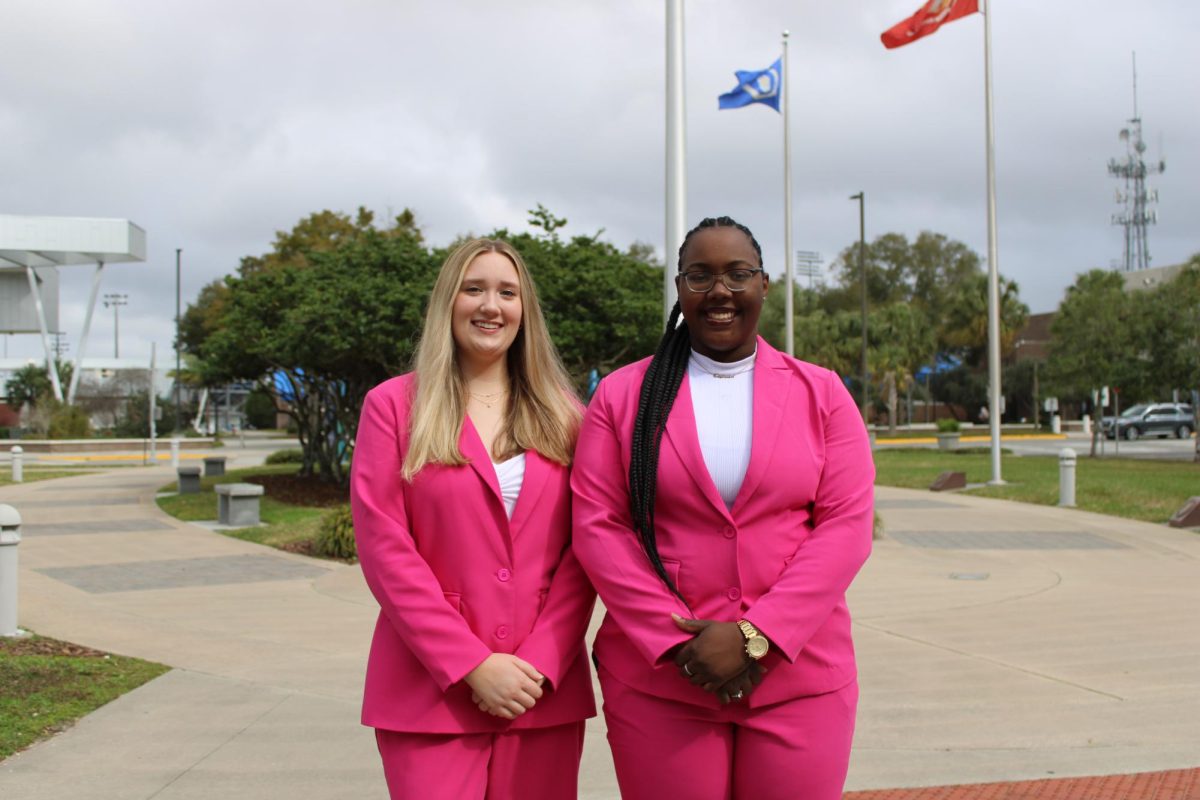After months of hearings, deliberations, and decisions, the Student Government budget for fiscal year 2020/2021 hit the Senate on Friday, February 7.
Treasurer Kenneth Smith shared the breakdown of all of the changes both he and the Budget and Allocations Committee had made. After his presentation, senators debated the provisionary language and details of the indexes.
There was a relative consensus on the budget, but the biggest point of discussion was the minimum wage for student employees. In the new budget, all student OPS positions funded by the Activity and Service Fee earn a minimum of $9 an hour. This includes positions at the Recreation and Wellness Center and the Student Union. Employees of Student Government would earn $10 an hour, with the President and Vice President of the student body earning $11 an hour.
Senators discussed the possibility of increasing the minimum wage of all student OPS positions to $10 an hour, rather than $9. This change would cost an additional $95,053, but Treasurer Smith thought this may not be feasible. The initial increase to $9 an hour would affect roughly a quarter of Student Union employees, while the increase to $10 would be much more far reaching.

Smith raised several concerns with this change. The current promotional standard for student positions is starting at $9 an hour as a freshman and increasing to $10 an hour as a sophomore, and so forth each year. With an increase to a minimum wage of $10 an hour, promotional benefits would be decreased or nonexistent.
There were also concerns of how this would impact the Federal Work Study Program.
“In the Federal Work Study program, you start your freshman year at minimum wage and then you end, if you’re still working, at $10 an hour your senior year,” Treasurer Smith told the Senate. “So if we make $10 an hour minimum wage, the concern is that it will make that less competitive and less attractive, and then we lose FWS positions.”
Further, this increase would close the gap between student OPS positions and low tier salary positions. Smith elaborated on this, saying, “They’re paid benefits but they are making less than most salary positions, and the concern is that the gap is closing on that.”
While raising all students to $10 an hour seemed unfeasible, senators also discussed leaving Student Government employees at $9 an hour instead of approving the raise to $10.
“My concern is that we are saying for other students that $9 is enough for them, and yet we’re saying for ourselves it’s not enough for us, just because we haven’t had an increase in 3 years,” said Senator Anthony Hall. “I don’t feel it’s ethical to give ourselves a raise when we’re telling other students it’s okay for them just to have $9 an hour.”
Defending why he included the change in the budget, Smith said, “Student government’s been at $9 an hour for the past 3 years, and we have not had a wage increase since then. Additionally, we’re locked in at $9 an hour.”
“In other indexes like Student Union and RecWell, you start at minimum wage and then depending on your merit and how much you work, you go up… Student Government does not have that opportunity. In the effort of transparency, we don’t budget like that,” he continued.
“It’s a fair increase, and everyone’s getting bumped up proportionally,” he concluded.
“I don’t think it’s coming from a ‘we’re better than you’ standpoint,” said Senator Catherine Selin.
This change would also reduce the pay of the Committee Chairs, who have increased responsibilities from senators. “Having these leadership positions higher than the minimum wage, in a way, incentivizes students to take that initiative to try to strive for those leadership positions,” Selin argued in support of the raise.
The motion to reduce all student OPS positions to $9 an hour, thus not granting Student Government a raise, failed 2-0-21. All student OPS positions funded by the A&S Fee will be paid at $9 an hour minimum wage, and all Student Government employees will be paid at $10 an hour minimum wage.
Overall, the budget passed 23-0-0, and now goes to the University President to sign. If he line-item vetoes any initiatives of the budget, it goes back to the Senate for changes.
—
For more information or news tips, or if you see an error in this story or have any compliments or concerns, contact editor@unfspinnaker.com.















